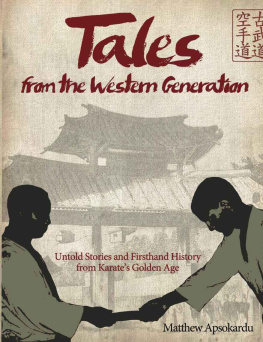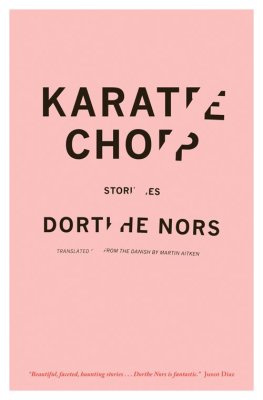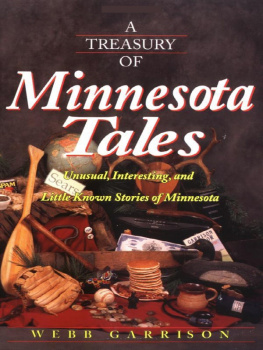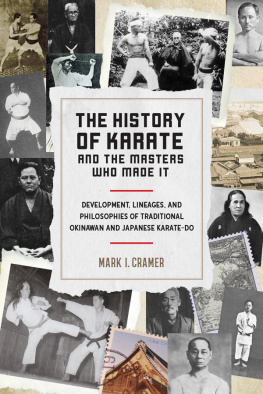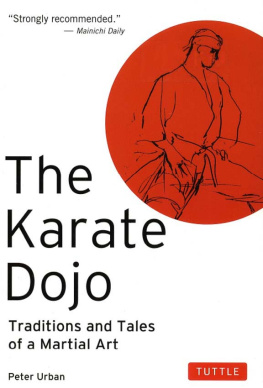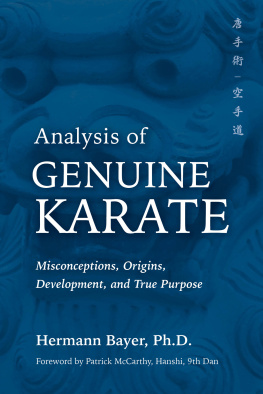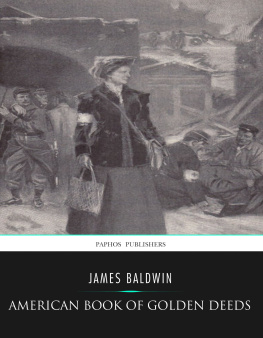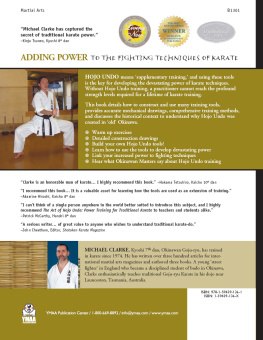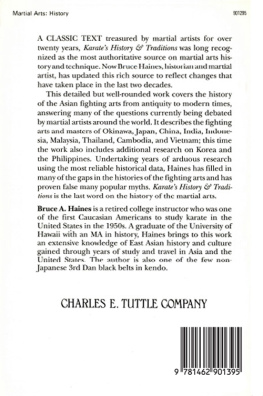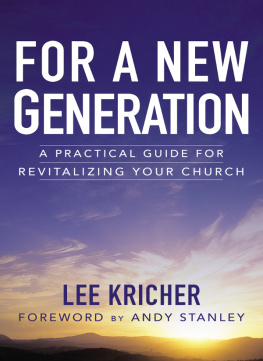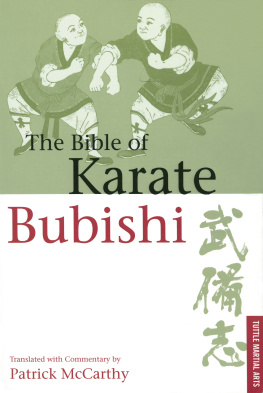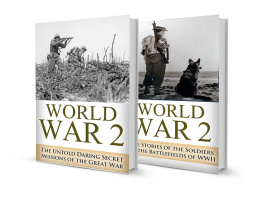Tales from the Western Generation
Untold Stories and Firsthand History from Karates Golden Age
Matthew Apsokardu
Apsos Publishing
Pennsylvania, U.S.A.
Apsos Publishing
Apsos LLC
Pennsylvania, U.S.A.
http://apsospublishing.com
2015 by Matthew Apsokardu
All rights reserved including the right of reproduction in whole or in part in any form.
WARNING: Martial arts training is a serious and potentially dangerous endeavor. All training should be done under the careful guidance of a competent instructor.
The information contained in this book is for research purposes only. The reader assumes all risk of training and absolves the author, publisher, and interview guests of liability.
The opinions and recounting of facts in the following interviews are those of the interview guests. The author, Matthew Apsokardu, is not held liable for factual inaccuracies or statements interpreted as libelous.
Cover Photo: The main image features Jim Logue and Oyata Seiyu, reproduced with permission from the Logue family. The background image commemorates the landing of Commodore Matthew Perry on Okinawa.
Other images in the book have been supplied with the approval of interview guests, with proper attribution to their owners, or via public domain. No images can be reproduced without the express permission of their respective owners.
Editorial assistance by Christina Steffy and Lauren Apsokardu.
To learn more about Tales from the Western Generation visit westernkarate.com .
Dedication
For my family: Patricia Apsokardu, George Apsokardu Jr., George Apsokardu III, Samantha Apsokardu, and Crystal Apsokardu.
A special thanks to Lauren Apsokardu for her patience and support throughout the creation of this project.

1964 Okinawa Karate Championship Tournament |

1967 Zen Okinawa Karate Kobudo Rengokai |
Table of Contents
Acknowledgements
A number of individuals were critical in assisting me in the development of this book. Without the Okinawan spirit of sharing passed down to senior practitioners in the United States, this project would not have been possible.
First and foremost, I want to thank my instructors C. Bruce Heilman and Ann-Marie Heilman. Their persistence in creating the International Karate Kobudo Federation was key in my meeting a number of other senior instructors in the United States. Furthermore, their reputation across the country opened doors for me and functioned as an effective letter of introduction, without which I could not have accessed so many top tier karateka.
I am also grateful to Rick Zondlo who has helped me tremendously on my personal martial arts journey. He has always shared his experience openly and has challenged me to live up to the higher standards of budo.
Bill Hayes has also been critical to this books development, patiently guiding me in both my training and writing.
Finally, I want to thank everyone who helped me initiate meetings with the senior practitioners featured in this project.
Keys to Understanding This Book
The following is a primer in understanding how this book came about, the kinds of people included as interview subjects, and how information is organized so as to avoid bias and confusion.
The Purpose of Tales from the Western Generation
When doing research for karate, I often find myself wishing for just a little more recorded material from the old masters. I doubt Im the only one. How valuable would a treatise be from Matsumura Sokon Sensei detailing his life and ideas?
In fact, we neednt go back as far as Matsumura Sensei. Even just a generation or two ago, with instructors like Gokenki, Shimabukuro Tatsuo, Nakamura Shigeru... we are left wondering about who they studied with, what difficulties they overcame, and how they viewed karate.
On Okinawa the tradition of oral transmission of information is well established. This practice has left holes in our understanding and has allowed room for apocryphal exaggeration. The devastation from the Battle of Okinawa only exacerbated an already growing problem.
We, as a modern culture, neednt make the same mistakes. If we stop for a moment, well realize that there are masters still with us, just now reaching the prime of their wisdom. It is our duty not only to look back at karates history, but also to look around us as history is made before our eyes.
The purpose of this book is to record the stories of individuals who have been critical in retrieving karate from Japan and Okinawa, causing it to spread into the United States and ultimately the world. We do this so that future generations can benefit from understanding their circumstances and ideas.
How Selections Were Made For Inclusion
For a book of this scope, you may be wondering how I decided which individuals to include and which to exclude. Its an important question which I would like to address so that you can enjoy the book without worrying about the politics of martial arts.
My selection process utilized a system of checks and balances inherent in the world of old style karate. The more classical practitioners I spoke to, the more I was able to learn about events in years past from multiple angles. By cross-checking this information, I was able to learn about individuals who did a lot to contribute to the growth of karate in the United States. That is how I arrived at most of the guests included in this book.
That being said, I realized very quickly that there was no feasible way I could discuss all the men and women who were important to the development of karate; such a task would expand massively outward. Instead, I had to put the following restrictions in place:
- Interview subjects had to have grown up in the United States (although not necessarily born here). Although a number of immigrants were critical to the growth of karate early on (Demura Fumio , Okazaki Teruyuki, etc.) they were not considered for this particular project.
- Ideal interview subjects trained with either first wave Americans, original Okinawan / Japanese Sensei, or both. The subjects should also have made a lasting impact on the growth of their style.
- In an attempt to cover as many original styles as possible, I avoided including too many interview subjects of any one style.
Some individuals I had hoped to include were not reachable or were in ill health. Others were contacted, but opted not to participate. Still others had complex and confusing histories that were not verifiable. Others I simply missed due to the scope of the project.
I, the author, take full responsibility for any individuals who were missed but belong in a project such as this. Its my hope that the reader understands this is not designed to be a comprehensive encyclopedia of karateka, but more a collection of stories from a number of important practitioners who were critical to the growth of karate.
How Interviews Are Organized
In an effort to stave off any potential bias or political maneuverings, intentional or unintentional, I began my organizational process by placing the interviews in alphabetical order. First the styles had been listed alphabetically with the appropriate practitioners contained within. Then, inside that style, the practitioners were ordered alphabetically. Once I finished writing and editing the book, I realized that the flow of information could be improved upon. As a result, I made some strategic moves to enhance the readers experience and create smooth continuity wherever possible.

